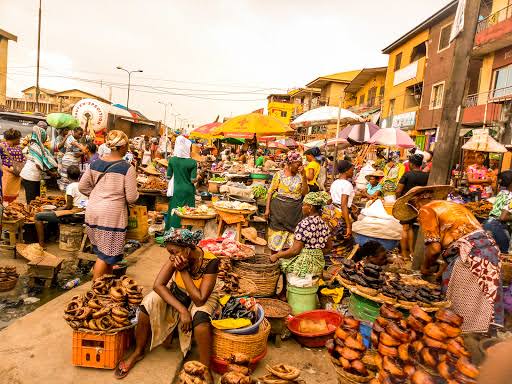
Despite recent data showing a decline in Nigeria’s inflation rate, traders and shoppers in Lagos continue to express frustration over the persistent rise in the prices of goods and services across major markets.
According to the latest figures released by the National Bureau of Statistics (NBS), inflation slightly eased in September 2025, driven by marginal stability in food and transportation costs. However, this improvement has not translated into relief for consumers, as most Lagos residents say prices in markets remain painfully high.
At popular markets such as Balogun, Mile 12, and Oyingbo, traders complained that the cost of replenishing stock has not dropped, largely due to high transportation expenses and unstable foreign exchange rates. Many of them noted that even locally sourced goods have become more expensive because suppliers are passing on increased logistics costs to retailers.
A trader at Balogun Market, Mrs. Adebisi Olayemi, said, “They said inflation has dropped, but we don’t feel it here. A bale of clothes I used to buy for ₦80,000 is now over ₦120,000. Transporters charge more, and customers are buying less.”
Shoppers also share similar concerns. Mr. Femi Adeyemi, a civil servant shopping at Oyingbo Market, lamented that his monthly salary no longer covers basic needs. “Everything is expensive — food, rent, even transportation. They keep saying inflation is dropping, but prices never go down,” he said.
Economic analysts explain that while inflation may have slowed statistically, it does not mean prices are falling. Instead, it means prices are rising at a slower pace. Many argue that the benefits of the reported decline will only be felt when key economic fundamentals such as fuel prices, exchange rates, and local production costs become stable.
Experts further urge the government to focus on policies that will strengthen local production, stabilize the naira, and improve access to affordable transportation and energy, noting that these factors directly affect market prices.
Until then, both traders and consumers in Lagos remain skeptical, insisting that the inflation numbers do not reflect the harsh reality in the markets and households.
Kindly Share this News!!!